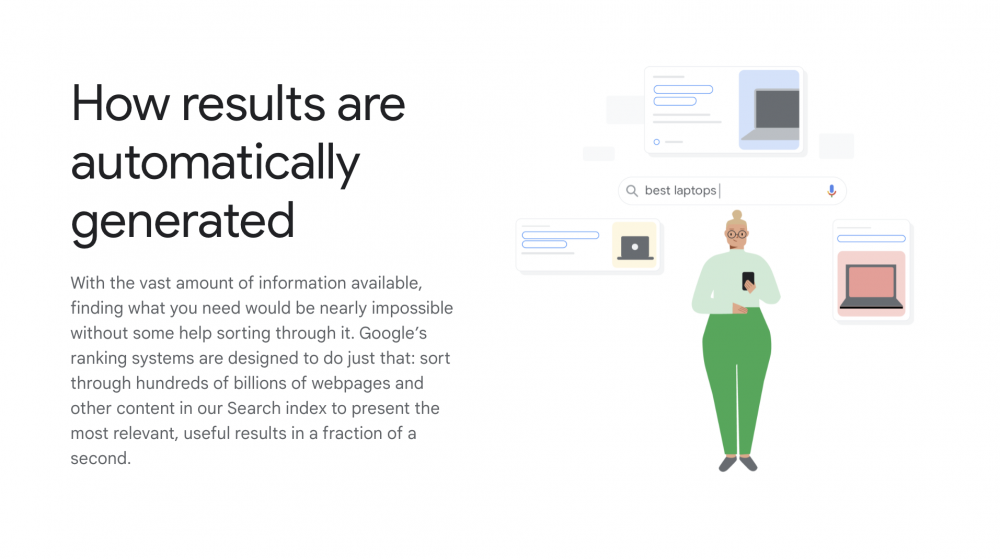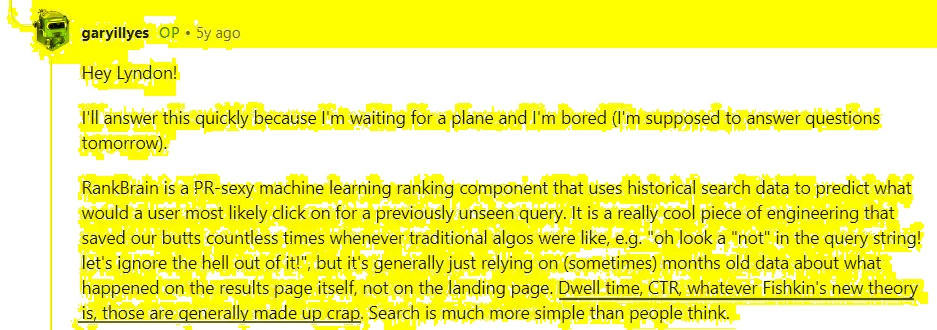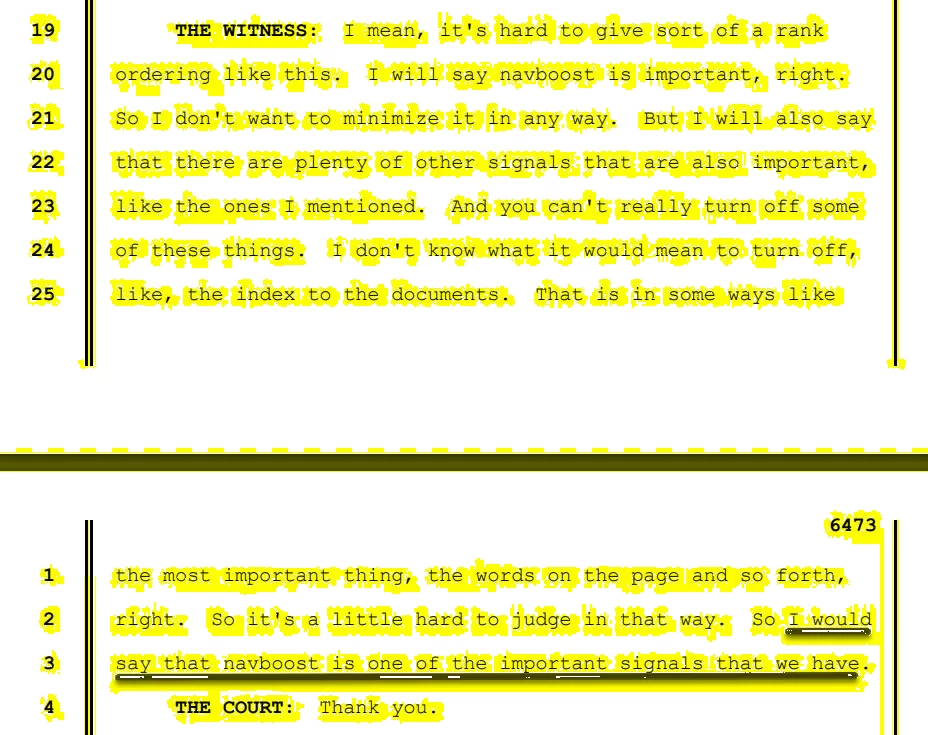Right now, the biggest buzz in the SEO industry is, without a doubt, the Google leak that SEO veterans Rand Fishkin and Mike King made public on May 27th. In this piece, we will examine what we know so far and how it will affect SEO going forward.
Before we dive into the leaked material, it is important to acknowledge why the leak is so disruptive. It is also important to highlight that the information is authentic, as now verified by Google.
Table of Contents
Background – Googles secrecy
Google (and other search engines) have always been secretive about the ranking factors used to determine a website’s position in search results.
The reason is that if the mechanisms of the ranking algorithms were made public, it would be easy to manipulate your way to better positions and more traffic. Ultimately, this would result in the search engine losing its credibility.
What Google reveals
While always careful with precise details, Google has been clear about the search engine’s objective: to deliver the most relevant answers to users’ questions.

Source: Google’s official website – How search works
Within this context, they continuously communicate various areas that website owners should consider and that impact the ranking in search results. Right now, this is primarily:
- Page speed and UX – Speed has been a ranking factor since 2010. This has been developed over time into a system they call Core Web Vitals, which includes various speed metrics and how the web page behaves while being used.
- Content – Google claims to promote the most helpful content. It does this by examining whether the search terms are included in the page’s text and whether the page covers relevant areas of the topic.
- Quality – To determine the quality level of content, they look at signals that demonstrate expertise, authority, and credibility (credibility being the most important). This includes external signals such as links from prominent websites.
It is speculated that Google has over 200 ranking factors, but no official number is available. We also don’t know how important different signals are for a website’s position in the search results.
Unraveling the algorithm: The SEO expert’s biggest dream
One of SEO experts’ primary tasks is optimizing against Google’s algorithms and ranking factors. This is often done through experiments and anecdotal evidence, based partly on what Google says and partly on unconfirmed observations.

Source: Rand Fishkin – SparkToro
Prominent SEO experts, such as Rand Fishkin, have repeatedly proposed theories about what appear to be observable ranking factors but which Google has categorically rejected.
Among other things, he discovered correlations between click-through rates and rankings, which Google consequently dismissed:

Source: Reddit
This quote from Gary Ilyes (Analyst and Google spokesperson) is five years old and has not aged gracefully. During the 2023 trial where the US government took Google to court for monopoly abuse, it was revealed that click data is actually used for ranking purposes.
And now the SEO world is suddenly left with a major leaked document that seems to confirm or reinforce theories that the search giant has stubbornly denied. On top of this, the leak includes insights into mechanisms of the ranking system that previously were completely unknown to the public.
About the leak
It seems that someone at Google accidentally posted some internal documentation about search engine ranking factors on GitHub. Before it was taken down, it was copied and handed over to SEO expert Rand Fishkin in the belief that he would publish and disseminate the information. One of the objectives was to refute the “lies” spread by Google over the years.
What does the document contain?
The leaked information is around 2.500 pages of API documentation, including 14.014 attributes (API features/ranking factors) that appear to come from Google’s internal “Content API Warehouse”.
It does not describe how different ranking factors and signals are weighted, but it does reveal what data Google looks at, including click data, as we mentioned above. Also, it is not verified if and how different attributes are used in a real scenario.
What can we learn from the leak?
We are still in the early stages of analyzing the documentation and it will certainly be turned over and over for a long time ahead. But, a few nuggets that we can mention so far are:
Domain Rating/Authority exists
SEO tools that rate websites based on their link profiles often use some term for the strength of the site as a whole. Popular terms are Domain Rating (from Ahrefs) and Domain Authority (from MOZ).
Google has consistently claimed that it does not use such an overarching measure, but the leak contradicts this. The documentation refers to something they call “siteAuthority”.
Exactly how siteAuthority is evaluated is not included in the documentation, but it suggests that Google uses an authority signal that affects the entire website. Once again, this goes against what they themselves have claimed.
What we take from this: Keep building links and referrals to your website, no matter what page they point to.
Clicks and user behavior do matter!
During the Google 2023 trial, there was talk of a system, Navboost, that evaluates user behavior as part of the ranking process.

Source: Excerpts from the trial between the US and Google
This is reinforced by the current leak. Navboost is mentioned 84 times in five modules of the leaked data and refers to the quality of different types of clicks, including click duration, and how long ago a site received a positive click signal. The Navboost data is stored for 13 months.
This is the final nail in the coffin of Google’s stubborn claim that click behavior is not a ranking signal. Hopefully, this is vindication for Fishkin and other SEOs who have claimed the opposite and in some cases even been mocked by Google employees.
What it means for SEO: Create click-friendly links in the SERPs and make sure users stay and consume the content on your page. It’s good for users, your conversion rate AND your rankings.
Links are still important
The documentation shows that links (backlinks) are still important and suggests that there are different levels, tiers, of sites, pages and the strength of their links is valued in the following way:
- TYPE_LOW_QUALITY
- TYPE_MEDIUM_QUALITY
- TYPE_HIGH_QUALITY
- TYPE_FRESHDOCS.
It seems that the number of clicks the linking page gets increases its quality score. Ultimately, the stronger the domain/page you get a link from, the better it is for your site. The amount of weight given to each level is not specified.
There has always been a divide in the SEO community about quality vs. quantity when it comes to backlinks.
We recently launched the largest backlink case study in the Nordics. The results of the study show that yes, links from strong sites get results, but, by far, the best results come from the quantity of links from relevant sites in the same niche.
Check out our Case Study here!
[link] – Case Study
Keep on experimenting!
No matter what Google says, it’s important to never stop testing and building your own hypotheses and cases. Google will never intentionally reveal its secret recipes and they will never admit if you are on to them. So, trust the data from your own experiments. That’s what we do!
Google or SEO experts – who can be trusted?
We need to understand that both sides of the coin are entities that primarily want to make money:
- Google needs to be the best search engine in order to generate maximum ad revenue.
- SEO agencies’ revenue comes from clients who pay them to bring them to the top of the search results. This is done with various strategies and techniques that somehow manipulate or influence the algorithm in the client’s favor.
It is in Google’s interest not to reveal too much and it is in the interest of SEO agencies to claim “I know exactly what works”.
How should we approach this?
A good benchmark is to listen to Google when they talk about their ambitions for the search engine and how they want to solve people’s problems.
When it comes to what actually works, it makes sense to listen closely to experts who have done in-depth analyses of real data. This is especially true when Google spokespeople try to put the expert down. Google does not seem to hesitate to make up excuses.
We will continue to provide updates on the leak, so follow our newsletter and stay tuned.


